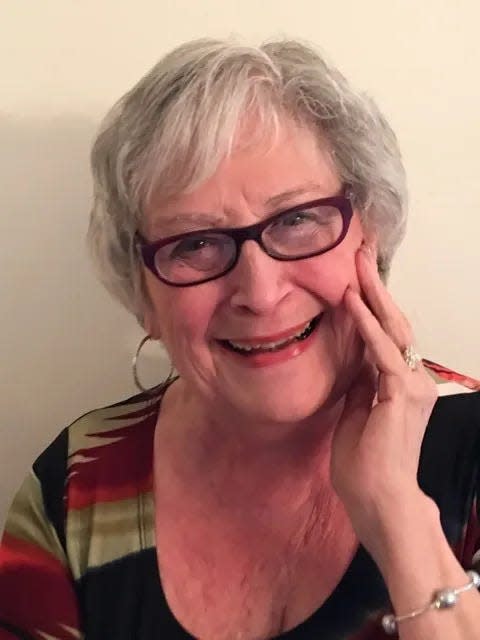Lenawee Smiles: It was time to take care of our dads

“He has about two weeks to live,” Dr. Smith told my husband, “the hemodialysis has failed, his heart is struggling and his weight has dropped dramatically in the past couple of weeks. We should find a nursing home for him where they can do peritoneal dialysis.”
The thought of my father-in-law, Sport, living out his last few days in a nursing home was too dreadful to consider.
“No. I think we should bring him home with us to stay.”
My husband looked at me and knew whatever argument he planned had to be ditched.
“But we don’t know how to do peritoneal dialysis,” he protested.
“Nonsense. A trained monkey could do it — someone will teach us.”
So on his discharge from the hospital, Sport came home. We had been trained to do his dialysis four times a day. We were given a thick handbook describing how to care for him. He could not have more than three bread crumbs, two fish scales and an ounce of warm water per day. So it appeared. We read the book and put it in the basement.
The day he left the hospital, I made a dinner of macaroni and cheese, a big salad and a cake. If, in fact, he only had a couple of weeks left, why not give him whatever he liked?
That April day when he came home, Sport was so weak he could hardly walk but when he saw the food, he made careful haste to the table. We watched him eat everything. He asked for more.
He asked for popcorn that night.
He ate everything put before him. He had a beer now and then. Soon he was outside mowing our lawn on the tractor. We watched him start to regain weight and his color improve. His pacemaker was working just fine.
Those two weeks melted away. We were into the third year when my father needed to be with us also.
The two old gentlemen did not like each other.
Coming home from work, I would be met with my father’s fistful of junk mail which he was sure was addressed to him personally then Sport would start to weep because I had not hugged him first.
We all got used to each other, and Sport continued to thrive. He became so well, in a sense, that my husband and I decided we could leave him one night so we could go out for dinner.
My father was an excellent cook so I asked him if he could fix dinner for Sport and himself.
Absolutely — he would fry chicken for one thing.
“That’s great Dad, we really appreciate it. But you cannot salt the chicken. It is the one thing that Sport is not supposed to have — no salt, right?”
Dad nodded, and later we left to go out for dinner.
When we returned, Sport was swollen and highly uncomfortable. We sped through his dialysis to give him some relief and tucked him in for the night.
“Uh, Dad? Sport has retained a great deal of fluid for some reason. You didn’t salt the chicken, did you?”
“No, of course not. I just soaked it in saltwater before I fried it.”
Sport lived well beyond those initial two weeks. He died nearly four years after he came to live with us. When I told my doctor about the two weeks melting into four years, he looked at me and said, “You should have the doctor who told you that 'taken out.'”
Was it an easy four years? Often not. In spite of his medical situation, we took Sport to visit out-of-state relatives, doing dialysis in parking lots on the road. Arrangements set up very early allowed us to take him to San Diego. When we reached the hotel, all the equipment and supplies for his care were waiting for us.
We never regretted having our fathers with us … in spite of their dislike for each other.
There were some “interesting” moments. Sport locked himself out of the house while we were at work one day. Dad set fire to his waste basket before heading off to his local spot for coffee.
Our patience could be tried.
But we remembered vividly that they had given us life, and it was time for us to care for them.
Susan Keezer lives in Adrian. Send your good news to her at lenaweesmiles@gmail.com.
This article originally appeared on The Daily Telegram: Susan Keezer: It was time to take care of our dads
